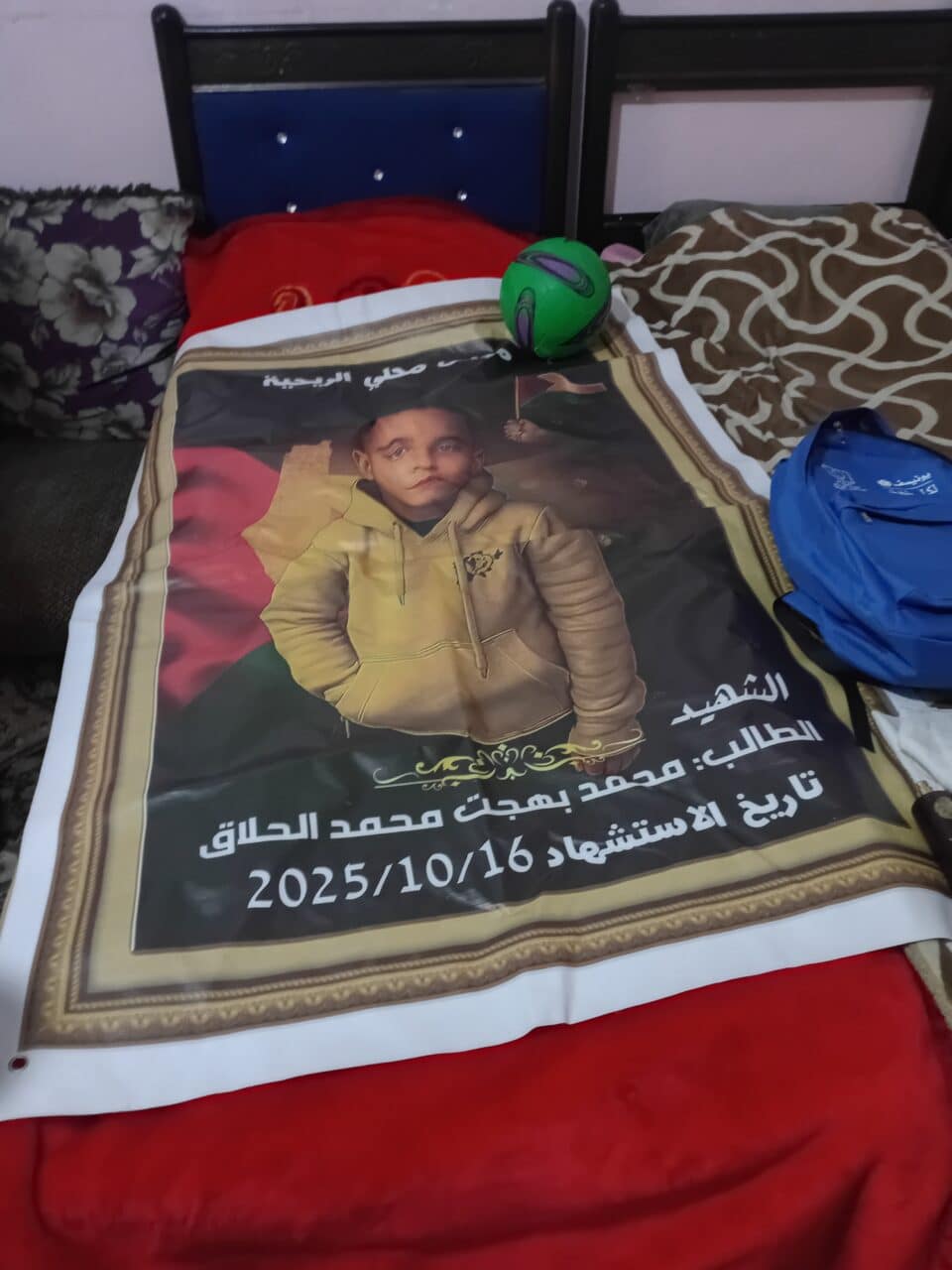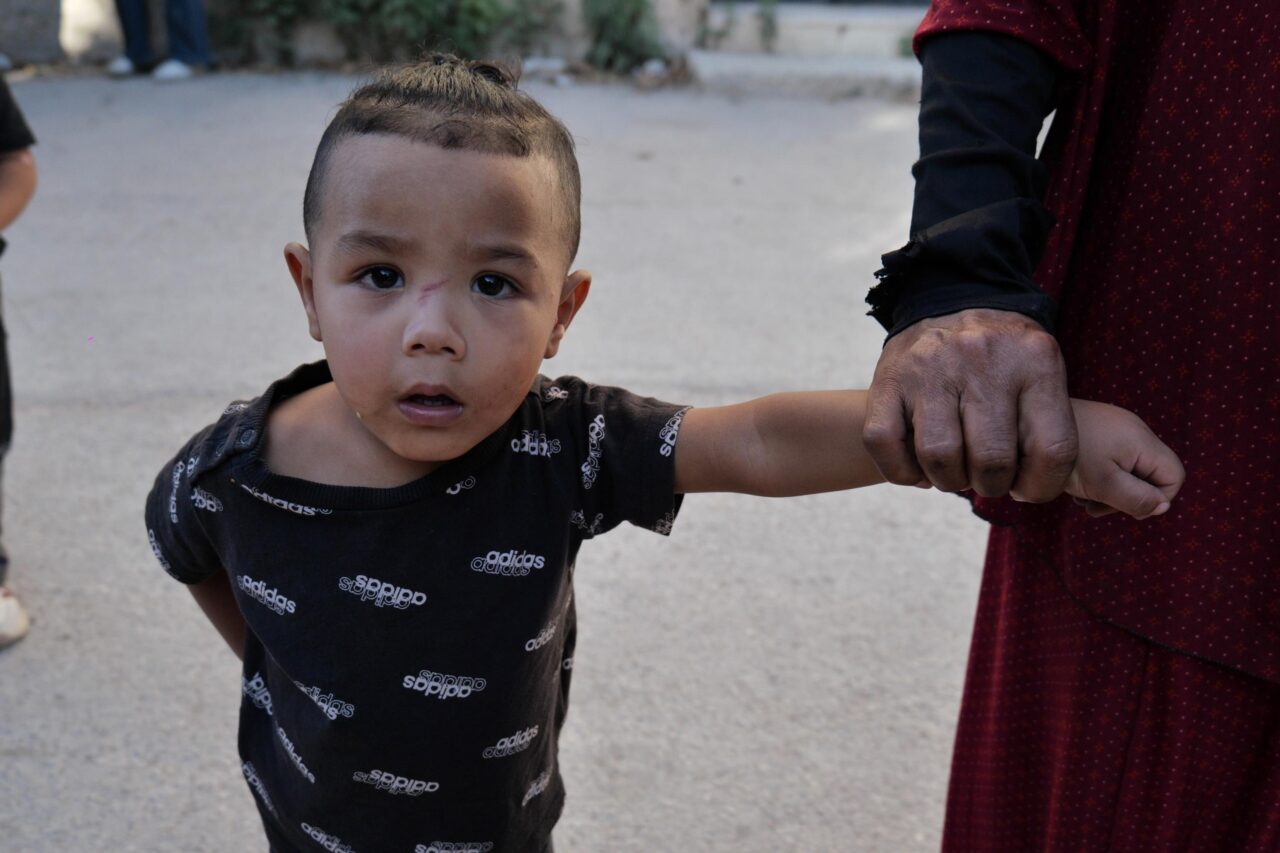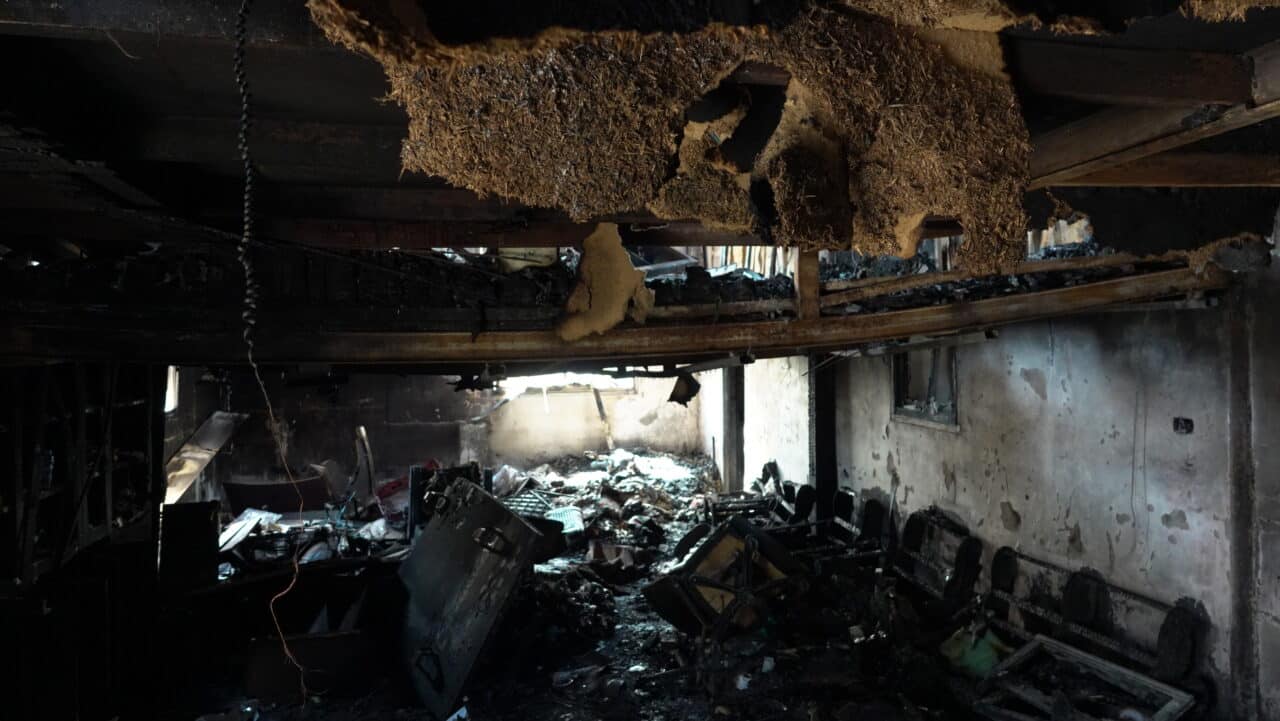Category: Photo Story
-
Israel’s War on Children
On the evening of Thursday, October 16, we got word that Israel Occupation Forces (IOF) shot in the abdomen a nine-year-old boy in al-Rihiya. A small village close to Al Fawwar refugee camp, al-Rihiya is 4 miles outside of Al Khalil (Hebron). It was established in 1951 on 1 square km of land to house…
-
Forced Eviction at Gunpoint in Tulkarem
By Diana Khwaelid | Tulkarem – West Bank | October 2, 2025 It is evidently not enough for Israel to “only” deport more than 90% of the residents of the Tulkarem refugee camp in the northern West Bank. The deportations are happening now, coinciding with the launch of a massive military operation on the North…
-
Settler arson attack on vital West Bank agricultural hub is blow to Palestinian food security
The Mishtil Al-Junaidy Al-Hadith plant nursery in Deir Sharaf, a major West Bank seed distributor and the heart of the region’s agriculture, was set on fire by illegal Israeli settlers on 8 September 2025, costing the owners over three million shekels and seriously damaging the already fragile Palestinian food system. The footage captured by security…



